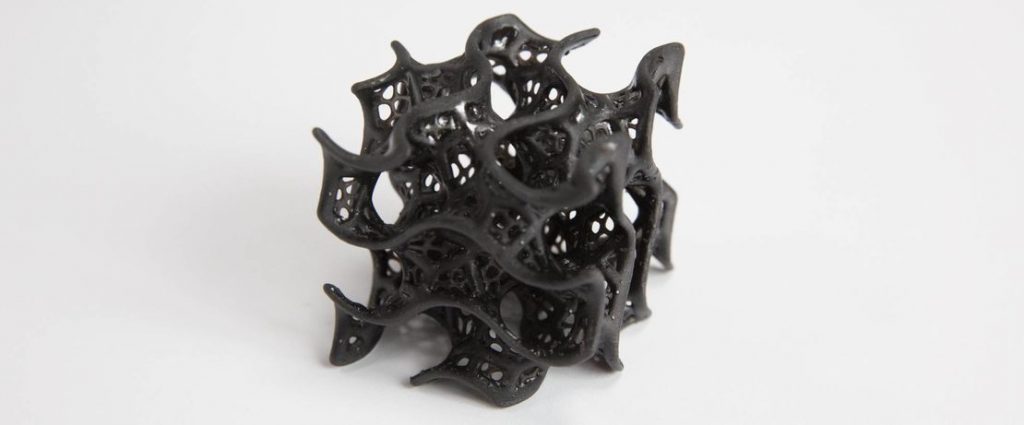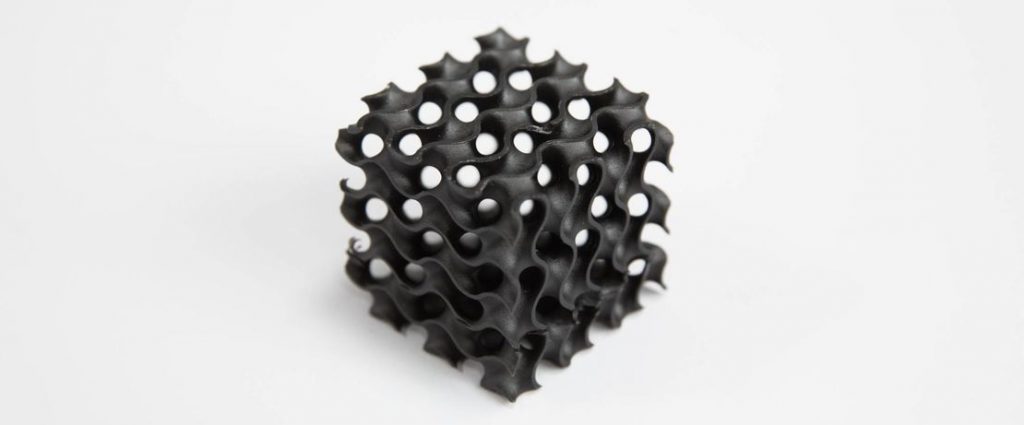German chemicals company Evonik has announced the launch of its new photopolymer resin product line for 3D printing.
Designed for use with most open materials SLA or DLP 3D printers, INFINAM TI 3100 L and INFINAM ST 6100 L are two ready-to-use resins suitable for high-performance industrial applications.
With its first entry into resin 3D printing, Evonik is placing a strategic focus on both ease-of-use and performance, and has even recently reorganized its entire materials range under the new INFINAM brand. The company will also be going ahead with customer and partner collaborations in the future, stating that these are ‘important innovation drivers’.
Dr. Dominic Störkle, head of the Additive Manufacturing Innovation Growth Field at Evonik, states, “With the new product line, we are entering the market-relevant photopolymer technology stream, strengthening our long-term market position as materials experts for all major polymer-based 3D printing technologies. With the new ready-to-use formulations, we are also continuing our materials campaign and driving industrial-scale 3D printing as manufacturing technology along the entire value chain.”

INFINAM TI 3100 L
The first of the materials, INFINAM TI 3100 L, is characterized by its high toughness and excellent impact-resistance. Evonik’s material testing process measured the impact resistance of printed TI 3100 L components at 30J/m³, with an incredibly high elongation at break of 120%.
This combination of properties makes the cured resin extremely resistant to strong impacts and permanent mechanical effects from pressing forces. As such, the company sees possible applications in everything from automotive parts and industrial tooling to load-bearing consumer goods.
INFINAM ST 6100 L
Similarly, INFINAM ST 6100 L is built to offer strength and durability. With a tensile strength of 89MPa, a flexural stress of 145MPa, and a heat deflection temperature of 120°C, the material also offers excellent temperature resistance and weatherability. Intended as a new benchmark in the field of ultra-high strength photopolymers, the resin would be best suited to applications that require a combination of temperature resistance and high mechanical strength.
Dr. Rainer Hahn of the company’s Additive Manufacturing Innovation Growth Field adds, “With INFINAM TI 3100 L and INFINAM ST 6100 L we have brought the group’s first photopolymer materials for additive manufacturing to market maturity. In doing so, we draw on the enormous chemical expertise of our researchers in component development and formulation. On this basis, we can offer the market a unique product with excellent properties and help our customers to conquer new application areas.”

Engineering resins for 3D printing
The market for engineering-grade 3D printing resins is a fast-growing one, with Evonik now entering the arena. The company is active in more than 100 countries across the globe and generated sales of €12.2 billion in 2020, making it a formidable competitor.
Just last month, global 3D printer manufacturer 3D Systems added a new production-grade resin to its material portfolio. Designed to last for years in any environment, including indoor storage or in outdoor UV and humidity exposure, Figure 4 Rigid White offers durable, rigid parts in a clean white color. The material also features an injection molding-like finish and a 65°C heat deflection point.
Elsewhere, Polish 3D printer manufacturer Zortrax also recently launched a new line of engineering resins for use with the company’s Inkspire UV LCD 3D printer. The Zortrax Resin Tough range, available in three colors, offers a set of mechanical properties comparable to those of conventional polymers, without sacrificing 3D printability and low shrinkage.
Subscribe to the 3D Printing Industry newsletter for the latest news in additive manufacturing. You can also stay connected by following us on Twitter and liking us on Facebook.
Looking for a career in additive manufacturing? Visit 3D Printing Jobs for a selection of roles in the industry.
Featured image shows a part made of INFINAM TI 3100 L. Photo via Evonik.



